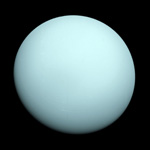Space atmosphere online
Jupiter
Uranus
Neptune
Here you can listen to fantastic records of the Voyager I and II space probes launched in 1977. These automatic investigators have been flying from our planet to outer space for 37 years , and, as some scientists think, they have already left the solar system.
During their flight, the probes have studied all surrounding planets, made lots of investigations and took thousands of photos. Now let `s talk about our atmosphere and sounds of planets.
As far as we all know, space is soundless. That`s why our sound atmosphere is electromagnetic oscillations of plants, their moons and satellites, planetary magnetosphere and solar wind. Such complex interactions have created the sound vibrations represented on this site. All these planets, winds and satellites sound interesting but sometimes spooky.
Here is the information about all planets that contributed their sounds to this magic symphony.

Jupiter is the biggest planet in the Solar system, the pink giant. Its diameter is 11.2 times more than the Earth`s one.
Jupiter consists of helium and hydrogen. The pressure and temperature in the depths of Jupiter are enormous; its winds can reach 600 km per hour; its magnetic field is thousands times more powerful than the Earth`s.
When you look at the night sky, this planet is the third brightest visible sky object. Venus and the Moon are brighter than Jupiter; they are the brightest in the Solar system.
Jupiter has 63 satellites and some people believe that one of them, Europa, may hide extraterrestrial life under its huge layers of ice.

Uranus is the coldest planet in the Solar system, the ice giant. The temperature on its surface can reach 224 degrees Celsius. The speed of winds on Uranus reaches 250 meters per second (900 km per hour) but despite all that, the atmosphere on this planet is considered the calmest. Summer on Uranus lasts for 47 Earth`s years. When Voyager 2 approached Uranus, it noticed only ten stripes of clouds in the visible part of this planet. By the way, this probe is the first and only space ship that visited Uranus.

Neptune is the eighth and most remote planet of the Solar system. The mass of Neptune is 17.2 times more than the Earth`s; its diameter is 3.9 times bigger than our planet`s one. Winds, strongest in the Solar system, rage in its atmosphere. According to some estimates, their speeds may reach 2100 km per hour. A year on Neptune lasts for 164 Earth`s years.
You can turn off sounds, make a pause, adjust volume. We hope that you will like our offbeat atmosphere that contains sounds of planets.

